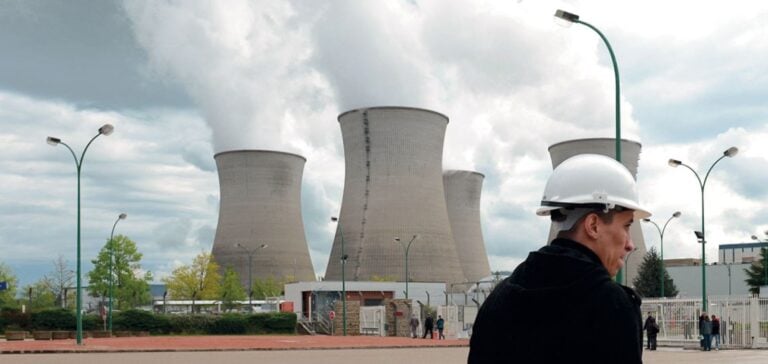The draft law on nuclear safety, the backdrop to a controversial reform sought by the government, is currently being drawn up, with union representatives from IRSN, the institute with expertise in the sector promised to be dismantled, warning on Friday against “a gas factory” fraught with risks.
Nuclear Safety Reform in France: Consultations Planned for a Bill by the End of the Year
At the end of July, a “Nuclear Policy Council” convened by Emmanuel Macron “tasked the Minister for Energy Transition with initiating consultations with stakeholders and parliamentarians with a view to preparing a draft law by autumn”, says the Ministry.
“There is a process of co-construction with the stakeholders, which will continue over the coming weeks,” we say.
This reform plans to combine the Institut de Radioprotection et Sûreté Nucléaire (IRSN), the technical expert in safety, and the Autorité de Sûreté Nucléaire (ASN), which decides on the fate of power plants, into a “single independent authority”.
Against the backdrop of a revitalized nuclear program, the government sees it as a way of “adapting” and “streamlining” decisions, but critics fear a loss of independence and quality of expertise, and less transparency for the public. This project was rejected by Parliament in May.
The text, which has been in preparation since the summer, is due to be released very shortly for informal and then formal consultations, according to François Jeffroy of IRSN’s CFDT CGT CFE-CGC trade union, based on information provided at a meeting with Minister Agnès Pannier-Runacher on Friday.
“The aim is to pass it through the Council of Ministers by the end of the year”, says the firm.
IRSN reorganization: a project criticized for its potential impact on safety
This week, the Minister also received the heads of ASN and IRSN, and proposed “to consider a format for interaction enabling direct exchange with all IRSN employees by the end of September”.
For the IRSN trade union, the drafting of the project already reveals its pitfalls.
“It seems to us that we’re building a gas factory to try to do in a new organization what was being done very well today, at the risk of not succeeding and of losing skills, and at the risk of undermining nuclear safety and security”, says Mr. Jeffroy.
In particular, the unions are concerned about a “loss of synergies”, with the transfer to other entities of expertise in defense installations, safety expertise and dosimetry services.
What’s more, “the Minister has told us that the bill will not include any guarantees on the separation of +expertise+ and +decision+ functions”, added the staff representatives in a press release.
“Technical risk assessment will therefore be under the control of the decision-maker and his constraints. This is contrary to the rules of deontology on which there is international consensus”, they warn.
The Ministry replies that the ASN already has experts. He adds that IRSN’s research activities will indeed be transferred to the future authority, as requested by staff.
Why does it matter?
The reform of nuclear safety in France raises major concerns about safety and technical expertise. Concerns relate to the possible loss of independence and quality of expertise, as well as the transparency of the decision-making process.
The final decisions will have an impact on the future of the nuclear industry in France and the safety of its power plants.






















